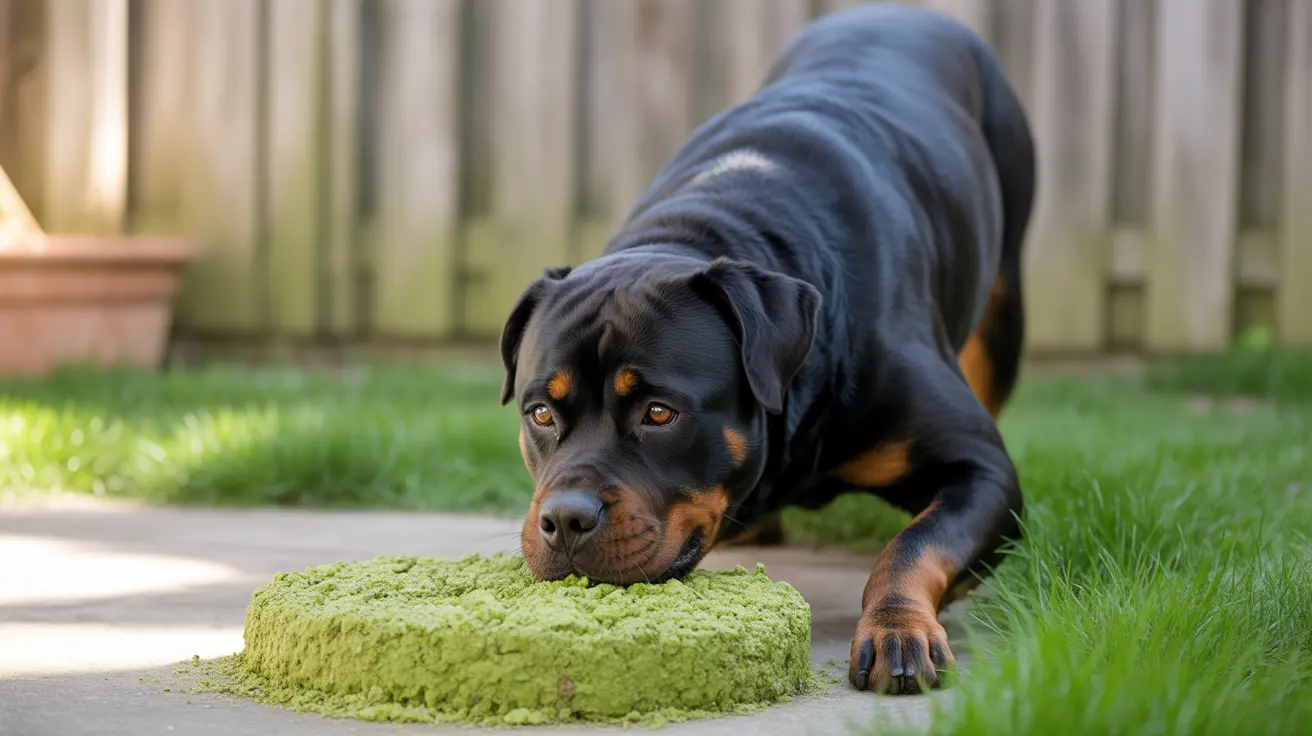Understanding Dog Waste Dissolution Methods
Before diving into specific solutions, it's important to understand that different methods offer varying levels of effectiveness and safety. The right choice depends on factors like yard size, presence of children or pets, and environmental concerns.
Chemical Solutions: Fast but Use with Caution
Garden lime (calcium hydroxide) stands out as one of the quickest solutions for dissolving dog waste. When properly applied, it can break down feces within 1-3 days. However, its caustic nature requires careful handling:
- Always wear protective gloves and eye protection
- Keep pets and children away from treated areas
- Use only white powder form, not pellets
- Rinse thoroughly after treatment
Enzyme-Based Products: Safe and Effective
Commercial enzyme-based dissolvers offer an excellent balance of safety and effectiveness. These products contain natural bacteria and enzymes that specifically target pet waste:
- Safe for lawns, pets, and people
- Works consistently over time
- Available in both spray and granular forms
- Perfect for regular maintenance
Natural Dissolution Methods
Vinegar Solution
A 1:1 mixture of white vinegar and water provides a natural alternative for breaking down dog waste. While slower than chemical options, it's generally safer:
- Apply directly to the waste
- May require multiple applications
- Can help control odors
- Use sparingly to avoid lawn damage
Composting Systems
Dedicated pet waste composting systems offer a long-term solution:
- Install in a discrete corner of your yard
- Add enzyme activators for faster breakdown
- Maintain proper moisture levels
- Never use resulting compost on food gardens
Safe Application Practices
Regardless of your chosen method, proper application is crucial for safety and effectiveness:
- Clear the area of toys and other items
- Apply solution directly to waste
- Keep pets away during treatment
- Rinse area thoroughly after dissolution
- Wash hands and tools after handling
Environmental Considerations
When choosing a dissolution method, consider environmental impact:
- Avoid bleach-based products that can harm soil
- Prevent runoff into water sources
- Choose biodegradable options when possible
- Consider installing a pet waste digester system
Frequently Asked Questions
What is the fastest and safest method to dissolve dog poop in my yard?
Enzyme-based products offer the best balance of speed and safety. While garden lime works faster, enzyme products are safer for pets, people, and lawns.
Is garden lime safe to use around pets, and how should I apply it?
Garden lime requires careful handling. Always wear protective gear, keep pets away from treated areas, and thoroughly rinse after use. Apply only to specific spots, not broadcast across your lawn.
Can enzyme-based products effectively dissolve dog poop without harming my lawn or pets?
Yes, enzyme-based products are specifically designed to be safe for lawns and pets while effectively breaking down waste. They work through natural biological processes rather than harsh chemicals.
How does diluted white vinegar work to break down dog feces, and are there risks to my grass?
White vinegar works by increasing acidity, which helps break down organic matter. While generally safe, frequent use can affect soil pH and potentially damage grass. Use sparingly and dilute properly.
What are the environmental and health risks of using bleach or lime to dissolve dog poop?
Both bleach and lime can be harmful to soil biology, pets, and human health if misused. They can also contaminate groundwater and damage plant life. Always use protective equipment and follow application instructions carefully.
Conclusion
While several methods exist for dissolving dog waste quickly, the best approach combines effectiveness with safety. Enzyme-based products typically offer the optimal balance, though natural solutions like vinegar can work well for occasional use. Whatever method you choose, always prioritize safety and follow proper application procedures to maintain a clean, healthy yard for your family and pets.






